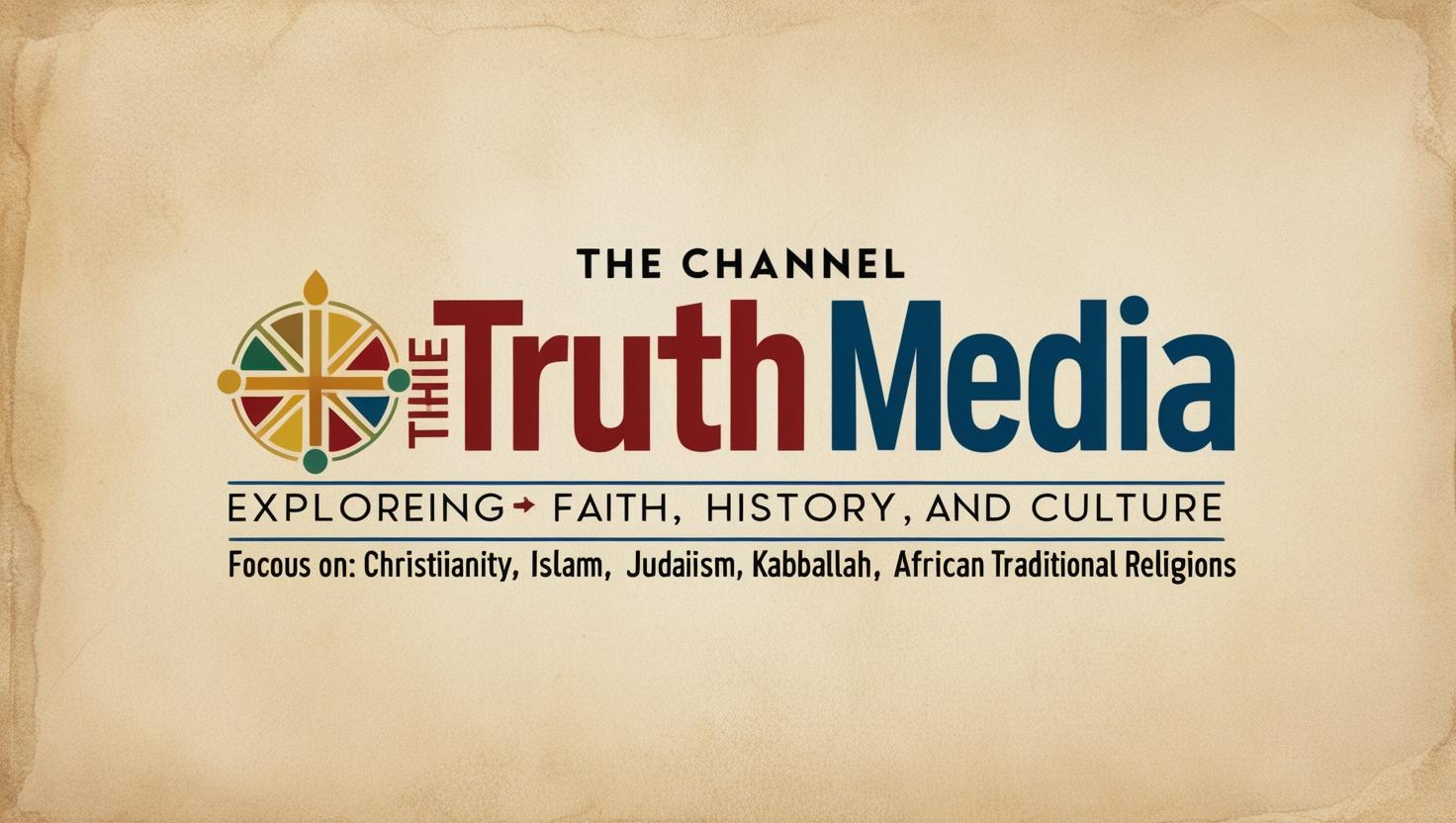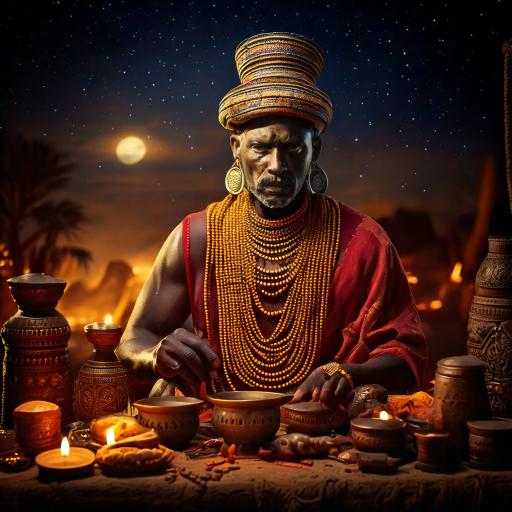Divination Practices in African Traditional Religions (ATR)
Divination has long played a crucial role in African Traditional Religions (ATR), acting as a spiritual tool to connect with the divine and gain insights into various aspects of life. It is believed that the divine realm, which includes deities, ancestors, and spirits, has a profound influence on human existence. Through divination practices, practitioners can tap into this spiritual world to gain guidance, predictions, and solutions to life's challenges. The diverse methods of divination in ATR reflect the richness and depth of African spirituality, offering insights into the fate of individuals and communities alike. This article will explore the various types of divination, how divination is used to guide life decisions, the role of spiritual mediums in interpreting divine messages, and the ethical considerations that govern divination practices.
Types of Divination: An Exploration of Methods Like Ifa, Casting Bones, and Other Divination Systems
In African Traditional Religions, divination is a deeply spiritual practice that uses various methods to receive messages from the divine realm. The diversity of these methods reflects the cultural and religious richness of the African continent. One of the most prominent forms of divination is Ifa divination, which is practiced among the Yoruba people of West Africa. Ifa is based on the belief that all events in the universe are connected to the wisdom of the Orishas, the deities in the Yoruba pantheon. In Ifa divination, the diviner, known as a Babalawo (or Iyalawo for female practitioners), uses a set of sacred palm nuts or cowrie shells to cast on a wooden tray. The pattern of the shells, as they land, is interpreted to reveal the guidance and messages from the divine.
Ifa divination is highly structured and follows a complex system of symbols and codes that represent various aspects of life. The diviner’s role is to interpret these patterns and provide answers to the questions posed by the individual seeking guidance. The wisdom of Ifa is considered sacred, and the messages delivered through this practice are believed to come directly from the Orishas and the ancestral spirits. It is common for Ifa divination to involve a thorough analysis of the individual’s current situation, as well as a look into their past and future, to understand the influences that shape their life.
Another form of divination commonly practiced in ATR is casting bones, which is particularly prevalent among the Akan people of West Africa. In this practice, the diviner uses a set of bones or other objects, such as shells, stones, or seeds, which are thrown onto the ground or a sacred surface. The way the bones land, as well as the specific objects used, is believed to carry significant meaning. The diviner interprets the patterns to reveal hidden truths about the seeker’s life and offer advice for the future. Casting bones is often used to uncover specific information about a person’s health, relationships, and general life circumstances.
In addition to Ifa and casting bones, there are various other divination systems practiced across different African cultures. Casting cowrie shells is another common method, where the shells are thrown and interpreted based on their position and orientation. Similarly, dream interpretation is widely practiced, with dreams being viewed as a direct communication from the spiritual realm. Other forms of divination include the use of herbs, fire, and water, each of which is believed to carry its own spiritual significance and method of interpretation. The diversity of these divination practices demonstrates the vastness of African spirituality and the different ways in which individuals seek divine insight.
Divination and Fate: How Divination Is Used to Guide Life Decisions and Predict the Future
In African Traditional Religions, divination is often used as a means of understanding fate and guiding life decisions. The belief in fate is deeply rooted in ATR, with the understanding that human life is shaped by a combination of divine will, ancestral influence, and individual actions. Divination provides a means to understand these influences and gain clarity about one’s life path. It is believed that through divination, individuals can align themselves with their true purpose, overcome obstacles, and navigate life’s challenges more effectively.
Divination is used to guide individuals in making important decisions, such as choosing a life partner, starting a business, or moving to a new location. In ATR, it is believed that every decision carries spiritual weight and consequences, and divination helps ensure that these choices align with the individual’s destiny. For example, when seeking guidance about marriage, a person might consult a diviner to understand whether the union is spiritually aligned or whether it will bring prosperity and happiness. In such cases, the diviner would use divinatory methods to explore the compatibility of the individuals involved, as well as any spiritual forces that might influence the relationship.
Divination is also used to predict the future, offering insights into upcoming events, challenges, or opportunities. While the future is viewed as not entirely predetermined, divination serves as a tool for revealing potential outcomes based on the current spiritual forces at play. For instance, a diviner may offer predictions about an individual’s health, wealth, or success in business based on the patterns revealed through divination. However, divination is not seen as a guarantee, but rather as a means of understanding the spiritual currents that shape one’s future. By consulting a diviner, individuals can gain foresight and take proactive steps to improve their chances of success, avoid pitfalls, and fulfill their destiny.
In many African communities, divination is not only about personal guidance but also serves as a tool for collective decision-making. Leaders of communities, clans, or families often consult diviners to gain insight into matters that affect the group as a whole, such as political decisions, agricultural planning, or conflict resolution. The wisdom provided by diviners is considered essential in maintaining harmony and ensuring the well-being of the community. By consulting divination, communities can align their actions with spiritual guidance and maintain balance between the physical and spiritual realms.
Spiritual Mediums: The Role of Mediums in Interpreting Divine Messages
In African Traditional Religions, spiritual mediums play a vital role in interpreting divine messages and facilitating communication between the physical and spiritual realms. Mediums are individuals who have been chosen or initiated to serve as intermediaries between the human world and the spiritual forces, including ancestors, deities, and spirits. These individuals possess unique spiritual gifts or abilities that allow them to channel divine messages, offer guidance, and facilitate healing.
The role of a spiritual medium is deeply respected in ATR, as they are seen as the gatekeepers of spiritual knowledge. Mediums often undergo rigorous training or initiation, which involves learning sacred rituals, symbols, and practices that enable them to communicate with the divine. In some cases, mediums may experience possession or trance states during rituals, during which they speak or act on behalf of the spirits or deities they are channeling. This form of possession is seen as a sacred experience, allowing the medium to convey divine messages directly to the seeker.
Mediums are essential in divination practices, as they help interpret the signs and messages received through various divination methods. For instance, in Ifa divination, the Babalawo or Iyalawo is considered a spiritual medium who not only interprets the patterns of the palm nuts or cowrie shells but also channels messages from the Orishas. In this way, the medium serves as a vessel for divine wisdom, ensuring that the messages are accurately conveyed to the seeker. Similarly, in casting bones or cowrie shells, the diviner often works as a spiritual medium, interpreting the messages of the spirits and ancestors.
Beyond divination, mediums also play a significant role in spiritual healing, offering counsel and guidance on how to restore balance to the individual or community. They may perform rituals, offer prayers, or use sacred objects to help individuals overcome spiritual obstacles, illness, or misfortune. The medium’s role is not just about receiving messages but also about providing spiritual guidance and ensuring that the seeker is on the right path.
Ethics of Divination: Understanding the Ethical Considerations Surrounding the Practice of Divination
Divination, while deeply rooted in the spiritual traditions of African cultures, also raises important ethical considerations. The practice of divination is viewed as a sacred responsibility, and those who engage in it must do so with integrity, respect, and a deep sense of accountability to both the divine and the community. Ethical guidelines govern the way divination is practiced, ensuring that the process remains spiritually sound and does not exploit or harm individuals.
One of the primary ethical considerations in divination is the need for honesty and transparency. Diviners are expected to provide truthful and accurate guidance, even when the messages may be difficult or uncomfortable for the seeker. It is considered unethical for a diviner to manipulate or deceive the individual seeking guidance for personal gain. The diviner’s role is to serve as a spiritual guide, offering counsel based on divine wisdom rather than personal desires or biases.
Another ethical issue surrounding divination is the confidentiality of the messages received. Diviners are entrusted with sensitive information, and it is essential that they respect the privacy of those who seek their guidance. The messages received through divination are considered sacred and should not be shared with others unless it is deemed necessary for the well-being of the seeker or the community. Breaching this trust is considered a serious ethical violation.
Finally, divination must always be practiced with respect for the spiritual forces involved. This includes acknowledging the power and authority of the deities, ancestors, and spirits that are consulted during the process. Diviners must approach their practice with reverence, humility, and an understanding of their role as intermediaries between the physical and spiritual worlds. It is also important for diviners to maintain a sense of balance and harmony, ensuring that the messages they deliver serve the greater good of the individual and the community.
Conclusion
Divination practices in African Traditional Religions are essential spiritual tools that provide individuals and communities with guidance, insights, and predictions. From the intricate system of Ifa divination to the casting of bones, these practices offer a deep connection to the divine and the ancestral realm. Divination is used to navigate life's decisions, predict the future, and align with one’s spiritual path. Spiritual mediums play a crucial role in interpreting divine messages, and ethical considerations ensure that divination is practiced with integrity and respect. Through divination, African Traditional Religions continue to offer profound spiritual wisdom and guidance, shaping the lives of those who seek to connect with the divine.

